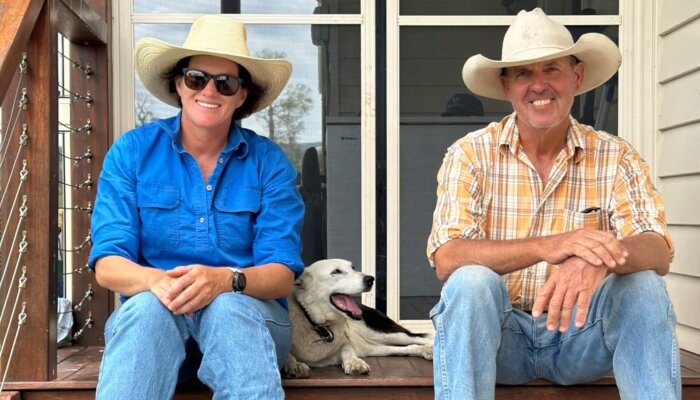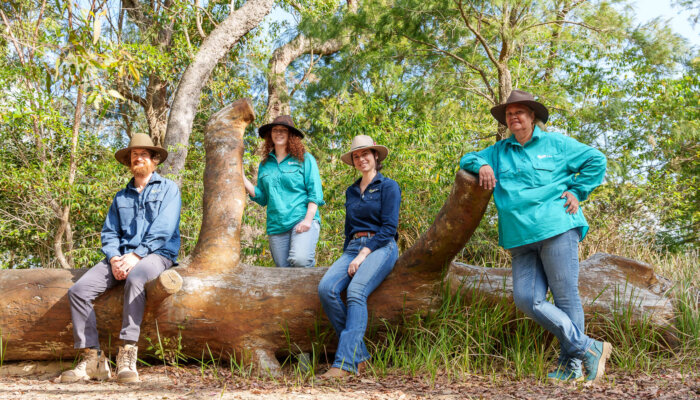Resources library - Land Managers
Land Managers Resources
Benefits of undertaking Grazing BMP
Benefits of undertaking Grazing BMP
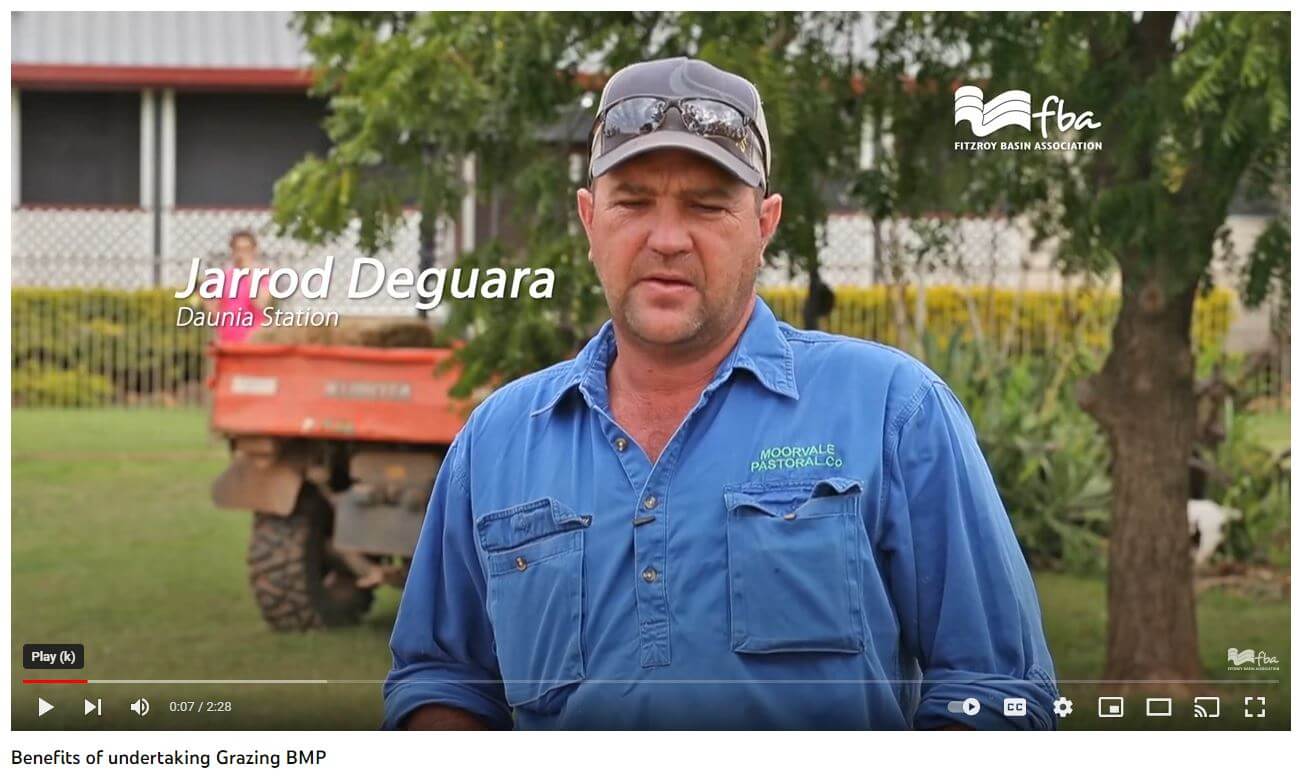
Central Queensland graziers talk about how they've benefited from undertaking Grazing BMP and how it's helping them to improve their production, management and land condition.
Supporting landholders to save their soils and the reef
Project Snapshot - Gully Remediation in the Fitzroy
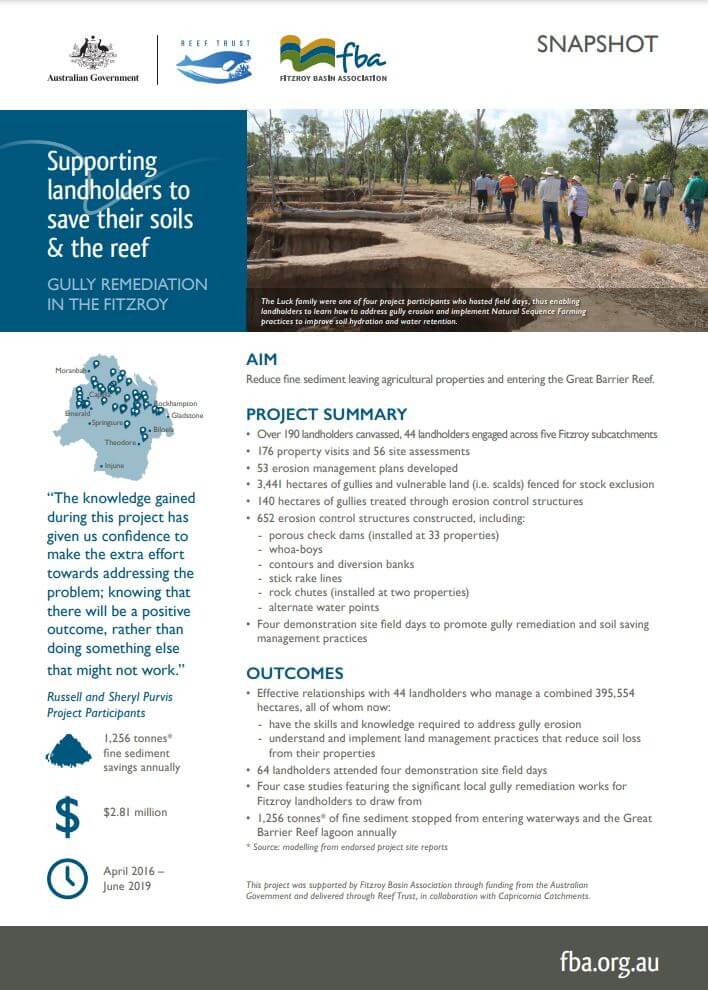
PROJECT SUMMARY • Over 190 landholders canvassed, 44 landholders engaged across five Fitzroy subcatchments • 176 property visits and 56 site assessments • 53 erosion management plans developed • 3,441 hectares of gullies and vulnerable land (i.e. scalds) fenced for stock exclusion • 140 hectares of gullies treated through erosion control structures • 652 erosion control structures constructed • Four demonstration site field days to promote gully remediation and soil saving management practices
Improving land management makes long-term sense
Improving land management makes long-term sense
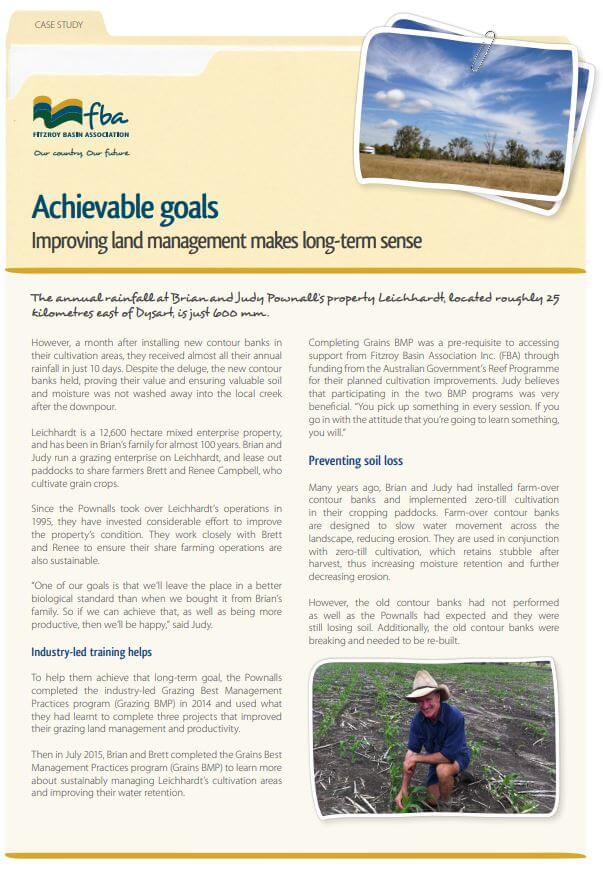
The annual rainfall at Brian and Judy Pownall’s property Leichhardt, located roughly 25 kilometres east of Dysart, is just 600 mm. However, a month after installing new contour banks in their cultivation areas, they received almost all their annual rainfall in just 10 days. Despite the deluge, the new contour banks held, proving their value and ensuring valuable soil and moisture was not washed away into the local creek after the downpour.
Fire in the Australian Landscape
The history of fire in the Australian landscape
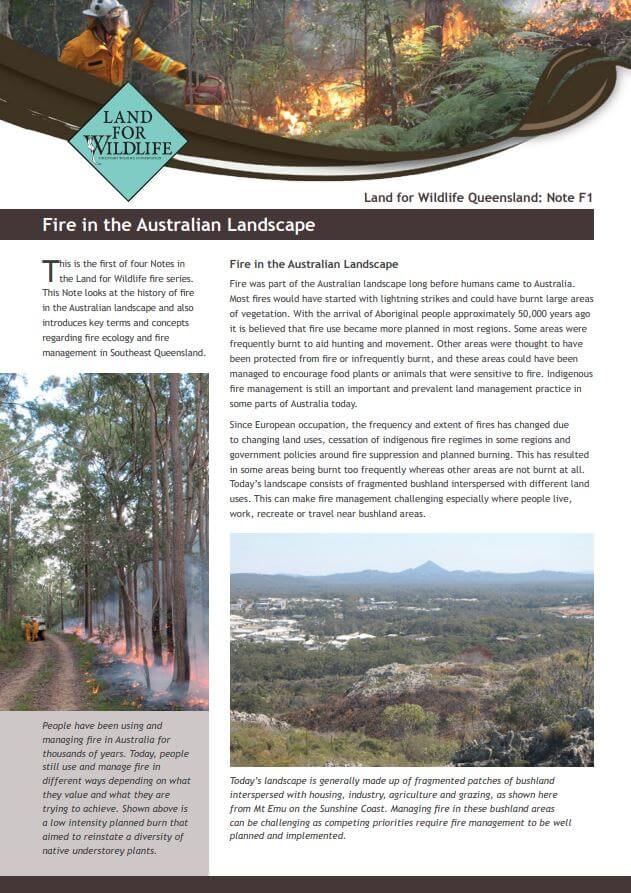
This is the first of four Notes in the Land for Wildlife fire series. This Note looks at the history of fire in the Australian landscape and also introduces key terms and concepts regarding fire ecology and fire management in Southeast Queensland.
Fire in the Australian Landscape
The complex topic of fire and wildlife
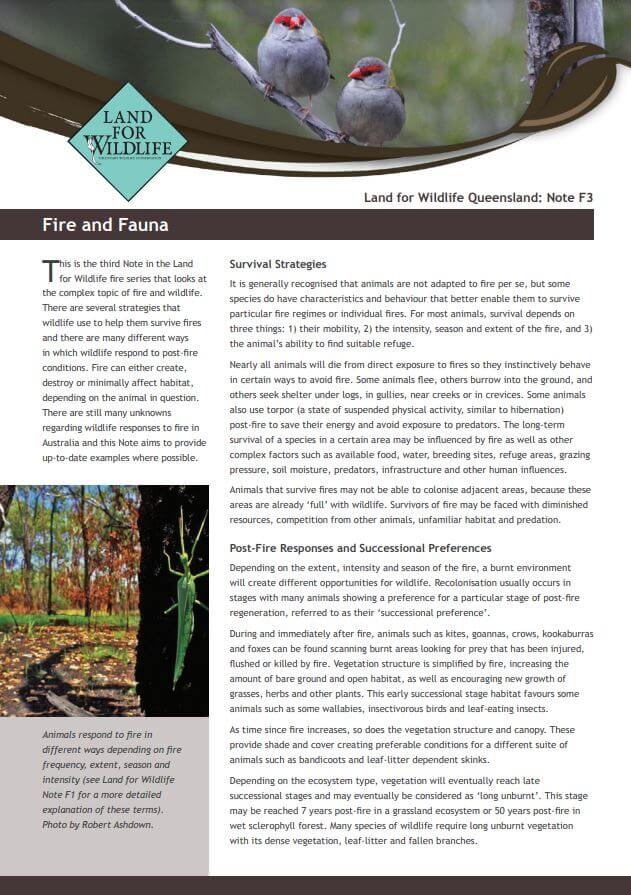
This is the third Note in the Land for Wildlife fire series that looks at the complex topic of fire and wildlife. There are several strategies that wildlife use to help them survive fires and there are many different ways in which wildlife respond to post-fire conditions. Fire can either create, destroy or minimally affect habitat, depending on the animal in question. There are still many unknowns regarding wildlife responses to fire in Australia and this Note aims to provide up-to-date examples where possible.
Fire in the Australian Landscape
The practicalities involved in planning for fire and reducing the risk of bushfire on your property
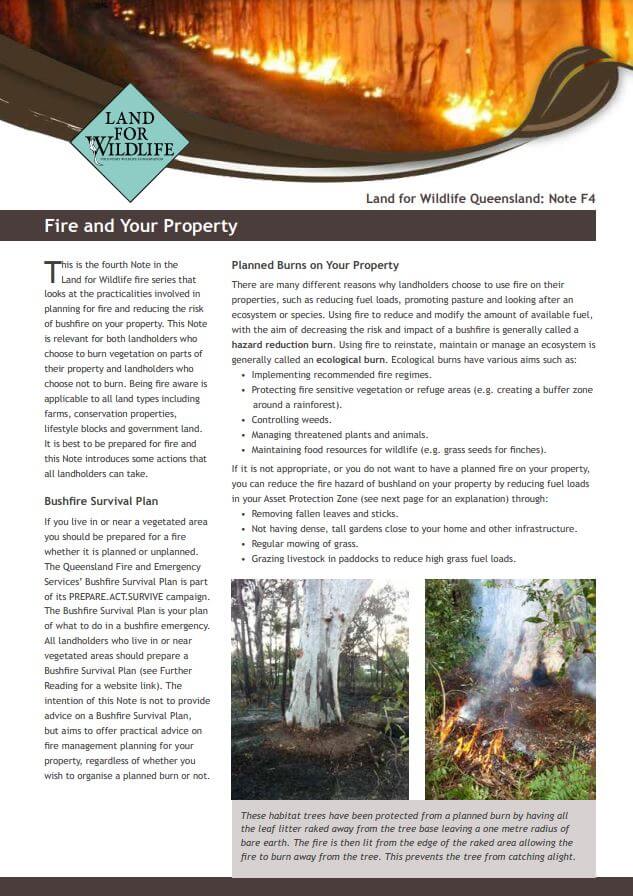
This is the fourth Note in the Land for Wildlife fire series that looks at the practicalities involved in planning for fire and reducing the risk of bushfire on your property. This Note is relevant for both landholders who choose to burn vegetation on parts of their property and landholders who choose not to burn. Being fire aware is applicable to all land types including farms, conservation properties, lifestyle blocks and government land. It is best to be prepared for fire and this Note introduces some actions that all landholders can take.
Growing better Halting run-off in horticulture
Growing better Halting run-off in horticulture
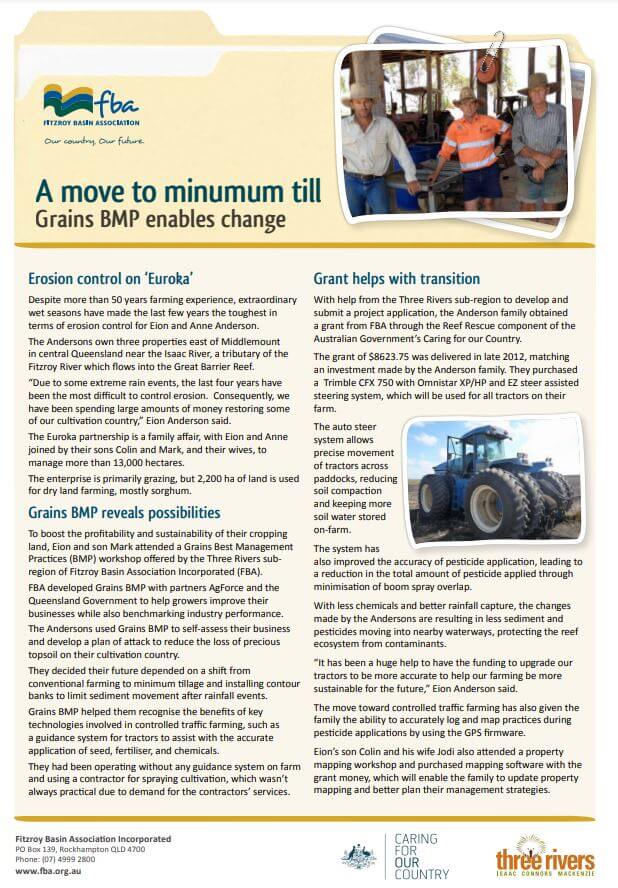
Rainy weather in CQ in the last few years has been a boon for local wetlands, and the fish, birds and other wildlife that rely on them. One local grower is helping protect local natural beauty by reducing run-off from his property.
GRASS Case Study
GRASS Case Study
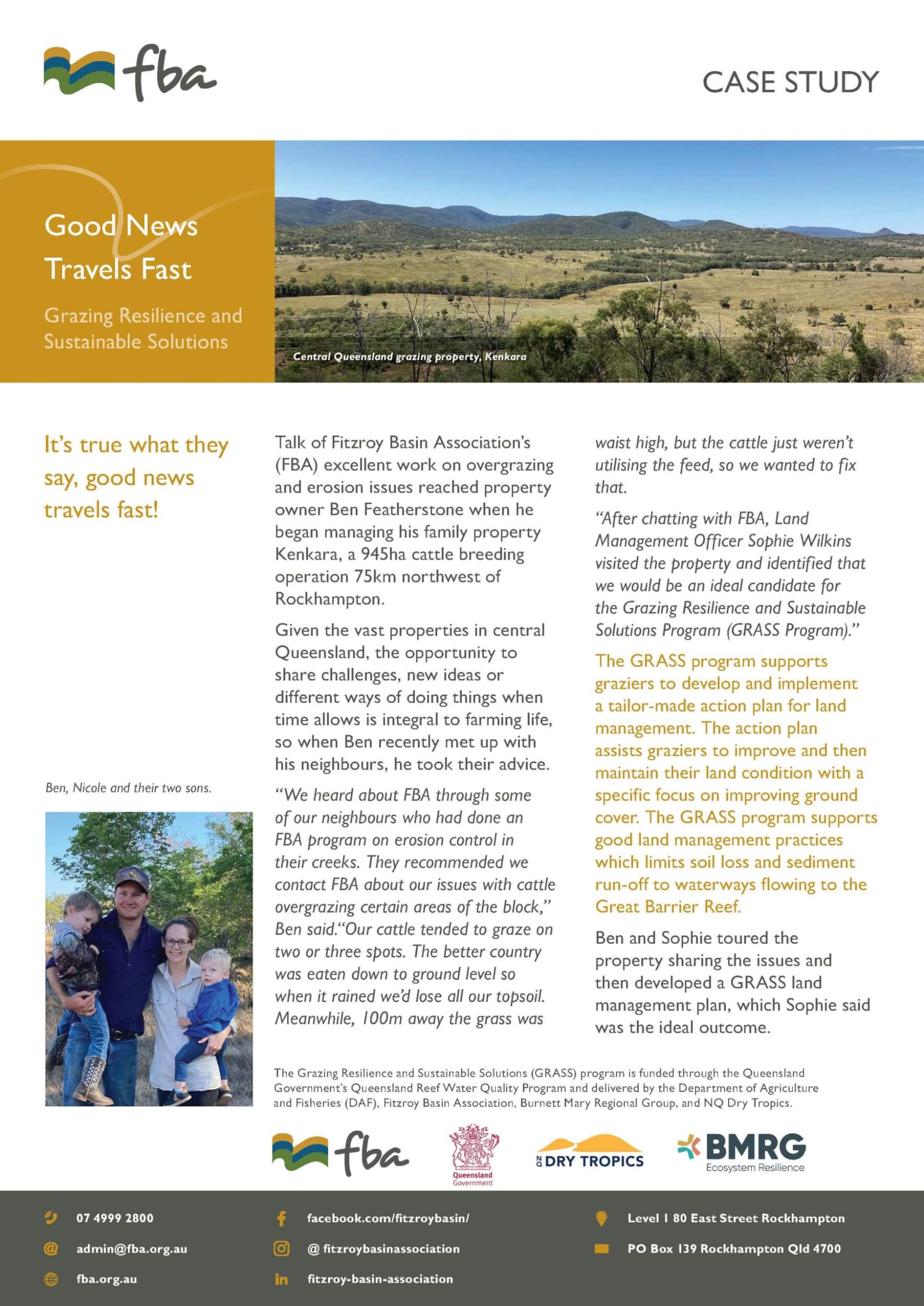
Property owners Ben and Nicole Featherstone have been working hard to improve land condition on their central Queensland grazing property, 'Kenkara'. Learn how funding through the GRASS program is helping them to reach their goals.
Australia’s largest streambank stabilisation project
Project Snapshot - Fitzroy River at Yaamba
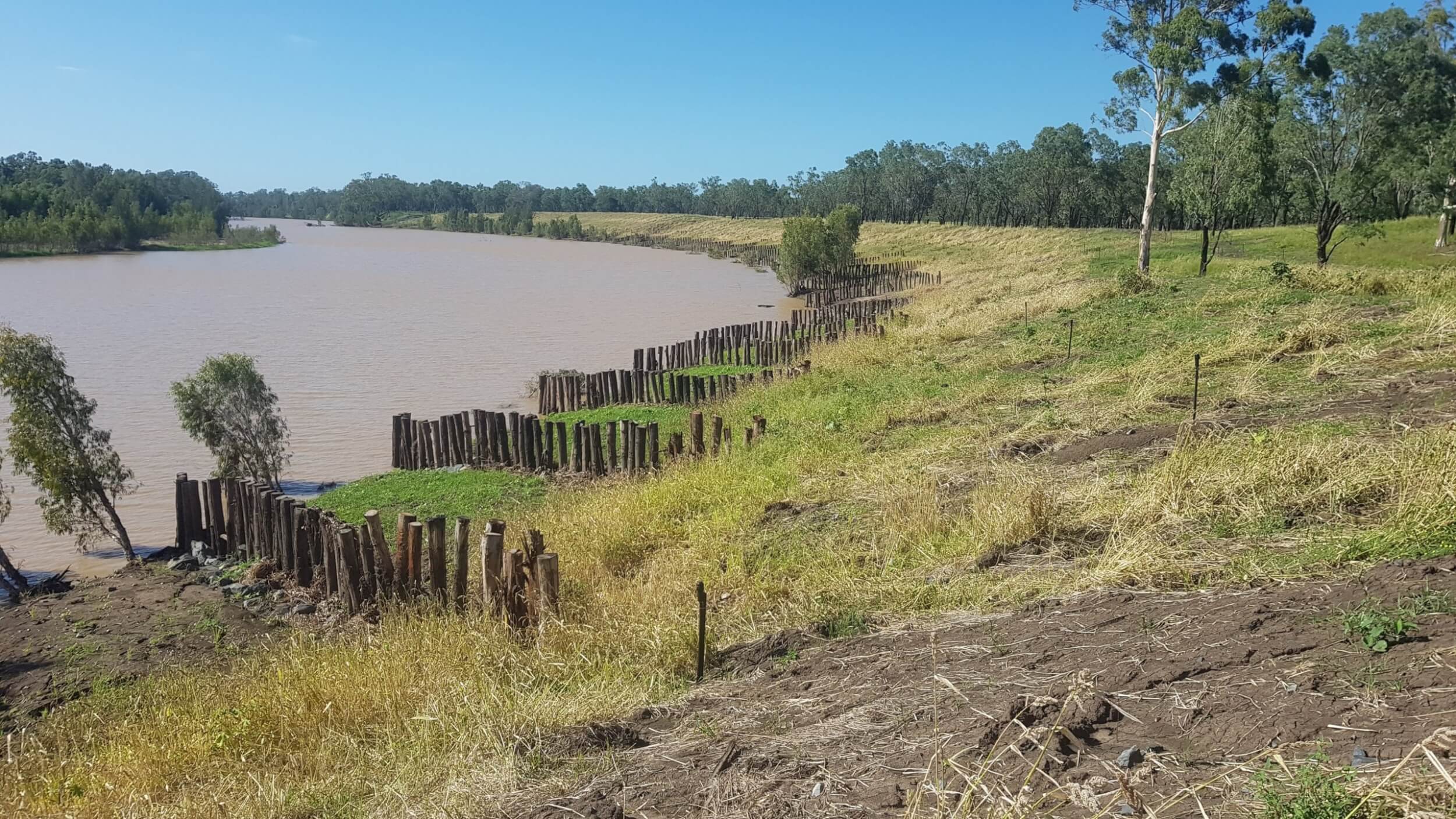
AIM - To stabilise 1.2km of the Fitzroy River which lost 266,000 tonnes of sediment (and 20 metres of bank) during and after Severe Tropical Cyclone Debbie in March 2017.
Clark Connors Range Fire Management Guidelines
Clark Connors Range Fire Management Guidelines
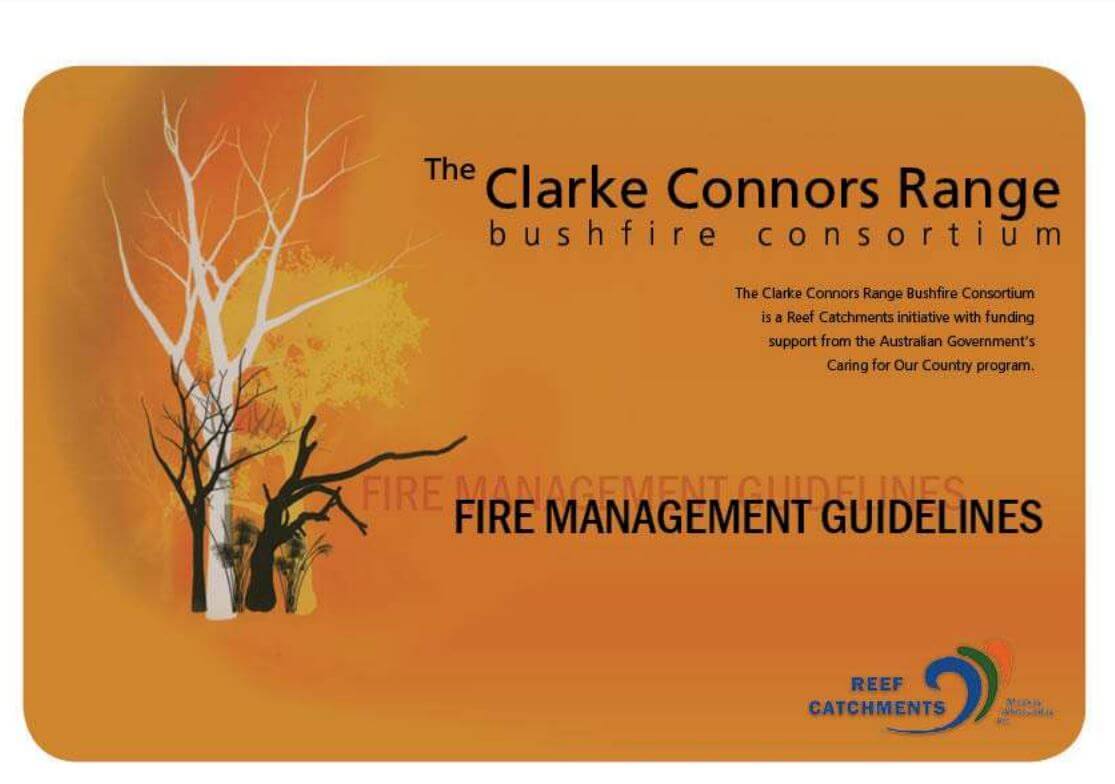
Appropriate fire management practices to help land managers in the Clark Connors Range plan hazard reduction burning and undertake planned burns to improve production and conservation outcomes.
Horticulture case study
Horticulture - Applying lessons learnt across industries
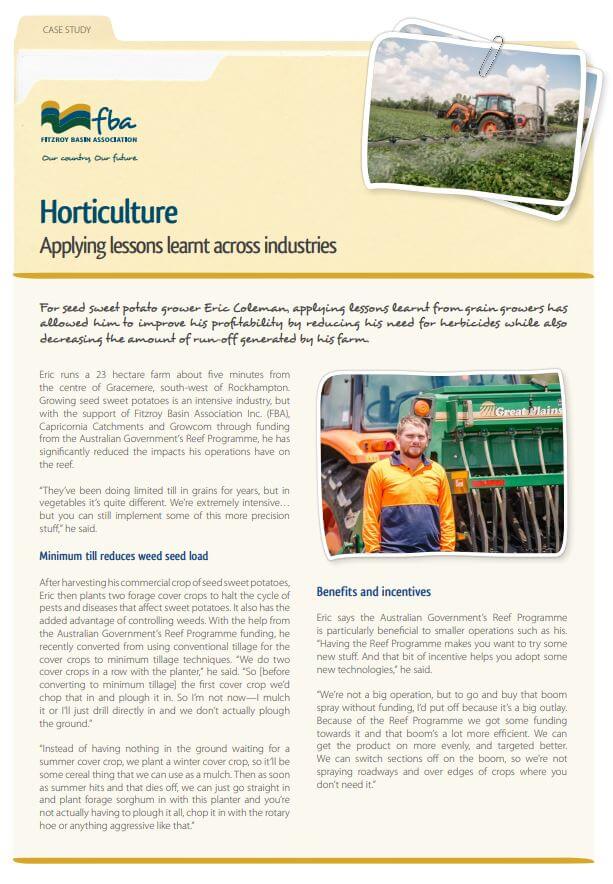
For seed sweet potato grower Eric Coleman, applying lessons learnt from grain growers has allowed him to improve his profitability by reducing his need for herbicides while also decreasing the amount of run-off generated by his farm.





